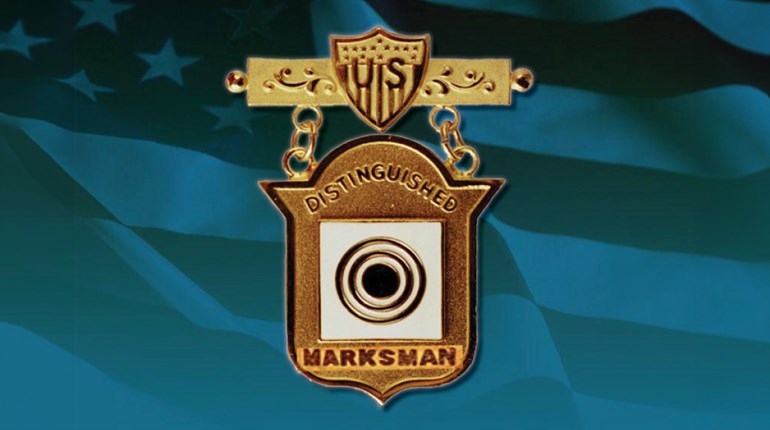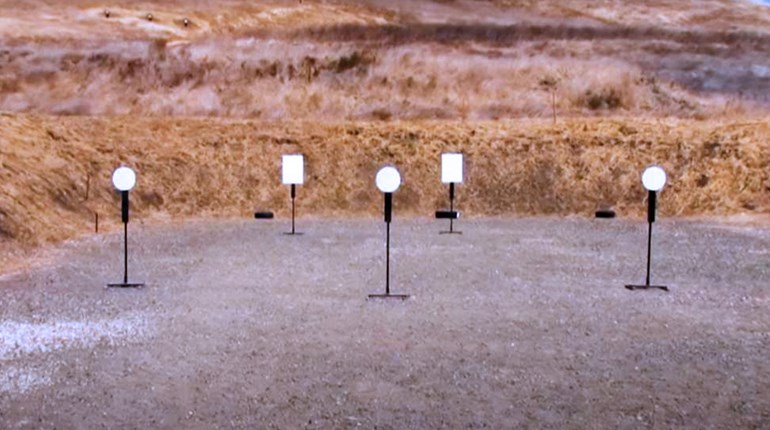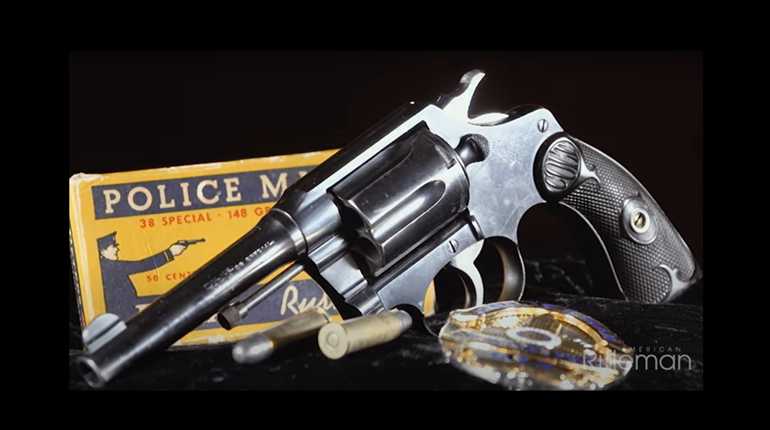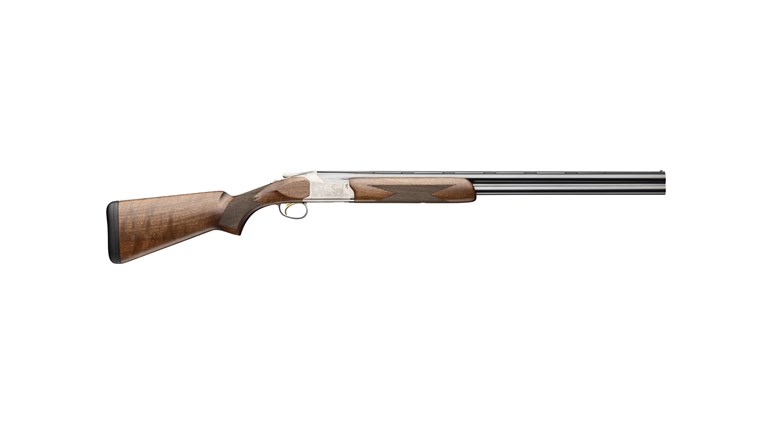
She calls it her “pitchfork moment.” For Ashlee Lundvall, who advocates for people with disabilities to fully experience the outdoors, that term encompasses not only the accident she had as a teen—which involved a pitchfork and paralysis—but also the journey to where she is today. Some would say she is a rising star in the shooting world, because she shoots and hunts. Ashlee also serves on the NRA Disabled Shooting Sports Committee, and as an NRA Ambassador to the disability community in partnership with the NRA Outreach Committee.
She answered these questions between packing sessions for her trip to Africa.
NRA Family: When people ask you what you do, what do you say?
Ashlee Lundvall: I am blessed to love my job—so much so that it doesn’t feel like a job! I am an inspirational speaker, writer and advocate. I tell my story, and in doing so, I get to meet and connect with people across the country. I want to be a resource and liaison between the disability community and different markets and organizations, and I am thankful for the opportunities I am given to help others.
NRA Family: Your journey to becoming a motivational speaker and advocate for people with disabilities being able to experience the outdoors really started when you were 16. Please will you relate how you came from that point to now?
Ashlee Lundvall: I was born and raised in Indiana, and I always loved the outdoors. I was a four-sport athlete, and my schedule kept me incredibly busy. In the early 90s, my parents loaded us up in the minivan and took off across the country for Wyoming. This family vacation introduced me to the West, and I completely fell in love with the scenery, the people and the outdoor adventures that only the mountains could provide.
I was able to return in the summer of 1999 to attend a youth camp on a working ranch. We were responsible for caring for the horses and steers every day. On Monday morning, August 2, I woke excited for a backpack trip in the mountains we would be leaving for later that day. I walked down to the lower corrals and climbed a ladder to the top of the hay rack. As I began to pitch hay down to the steers below, a flake from the bale fell off to one side. I reached for it and started to fall. When I hit the ground below, I landed crossways on the wooden handle of the pitchfork I had been using just moments before.
I hit my head multiple times on the way down, so when I regained consciousness, I didn’t immediately know something was wrong. I attempted to get up and realized that I couldn’t feel my legs. That’s when I saw the pitchfork. I began to yell for help and the camp director’s wife heard me and called 911. The ambulance took me to the hospital in Cody, and I was then taken by helicopter to another hospital in Billings, Montana.
My parents received the phone call in Indiana, and they approved my first surgery over the phone as they frantically tried to make arrangements with the airlines to get to me as quickly as possible. I had another surgery that week to repair my shattered vertebra, and by the end of that first week, the doctors told me that I would never walk again.
To say it was a dark time in my young life would be a bit of an understatement. I was angry and scared, and I believed, like many others, that using a wheelchair meant that I would no longer be able to enjoy the outdoor lifestyle I had grown to love. Thankfully, through the support of my family and friends, I gradually learned to be more independent and brave about trying new activities. Before long, I was more active as a person living with a disability than I ever was as an able-bodied person. I learned that life is short and unpredictable, and that we should be thankful for every day we are given.
NRA Family: Ms. Wheelchair 2013, with a platform of outdoor advocacy—how did that happen?
Ashlee Lundvall: When I first heard about the Ms. Wheelchair USA pageant, I thought it was a joke. Women in wheelchairs don’t compete in pageants, and I certainly had no interest to be a part of the pageant world. At the urging of friends, I did some more research, and I discovered that the Ms. Wheelchair USA pageant was different. While it celebrated that women with disabilities are beautiful, it focused more on empowering the contestants, teaching them to advocate for themselves and their communities, and giving them a national platform to talk about what is important to them.
I spent that week in Ohio meeting some amazing women and learning every day. I had so much fun that I almost forgot we were competing! I was given multiple opportunities to talk about accessible outdoor recreation, and loved sharing my story and adventures with anyone who would listen! I was probably more surprised than anyone else when I was crowned Ms. Wheelchair USA 2013, and I spent the next year on my “Crown & Camo Tour.” While I had done a little public speaking right after my accident, that year reminded me how much I loved meeting new people and sharing my story, and it was the beginning of the career that I now enjoy full time.
NRA Family: Firearms, personal protection and people living with a disability. What do you recommend?
Ashlee Lundvall: Most people view people with disabilities to be a weak, vulnerable population. Women with disabilities are statistically more likely to be abused or assaulted than able-bodied women. Your disability may make you feel defenseless, but you don’t have to be. There are many options for personal protection, from situational awareness to carrying Mace to finding what concealed carry option works best for you. Just as each person’s disability is varied, their level of independence and ability will vary as well. Because of this, research and trial and error are key. Don’t be afraid to look at multiple options, educate yourself, and reach out to others for resource material.
The NRA Adaptive Shooting program is currently working on a concealed carry manual for people with disabilities. Training is being made available for instructors and shooters alike. Businesses and organizations are finally realizing that the disability community is a massive, growing market, and that we need to be reached through product development, marketing and advertising campaigns, and program availability. It’s an exciting time to be involved in connecting people with disabilities with the tools they need to feel safe, and I am honored to be a part of it.
NRA Family: You’re off to Africa because of the SCI Pathfinder award. What did you have to consider before agreeing to participate in a safari hunt? What will be there for you?
Ashlee Lundvall: This will be my first time traveling to Africa, as well as my first time hunting outside of the U.S. It was a blessing to receive the award and be given this once-in-a-lifetime opportunity, and I’ve spent the last several months preparing. Fortunately, Jan Oelofse Hunting Safaris in Namibia, where we will be staying, is fully accessible and has been graciously providing this hunt award for decades. They have all of the accommodations and equipment that a hunter with a disability will need to be safe, independent and successful.
NRA Family: You’re a hunter, and a good one. How did you learn to hunt and what are some challenges to hunting that you have overcome?
Ashlee Lundvall: Thank you! I pride myself on being a safe and ethical hunter, as well as being a proud member of the largest group of conservationists in the world. I didn’t grow up hunting or shooting, and I wasn’t introduced to any of this lifestyle until I met my husband, Russ. Growing up in Wyoming, shooting and hunting were a way of life for him, and when we started dating in 2005, I had no idea what an integral part of my life it would become as well.
In 2008, I was approached to help start a nonprofit organization to bring hunters with disabilities from across the country to hunt in northwestern Wyoming. Wyoming Disabled Hunters was founded, and we hosted four hunters during that inaugural hunt in 2009. This fall, we plan on hosting nearly 40 hunters with disabilities as they pursue deer, antelope and elk through rifle and bow hunts. Being a part of this organization has not only solidified my love for hunting, but also my passion for helping others with disabilities enjoy the outdoors.
I would say that the biggest challenge that most hunters with disabilities have to overcome is just getting to where the animals are living. With all of the adaptive equipment available these days, anyone who is breathing and capable of making their own decisions can shoot a bow or firearm. But no matter how accurate you are with that tool, if you can’t get close enough to the animal you are hunting, it won’t do you any good at all.
My goal is for people to be as independent as they possibly can be, and to challenge themselves to try new things. For some people, that may mean utilizing a blind in a field. For others, that could look like shooting (where legal) out of a truck. Some people, depending on their abilities, may even be able to go completely off-road and pursue an animal into extreme terrain. Regardless of what works best for you and your situation, do everything you can to respect the animal and be thankful for the opportunity to be a hunter.
NRA Family: Your daughter—she’s going with you to Africa to observe, but when will she be old enough, in your eyes, to start shooting?
Ashlee Lundvall: Addison was born in 2010, and I am so thankful that she gets to grow up in this amazing outdoor lifestyle. We have been teaching her firearm safety since she was old enough to understand our words, and I think that is vitally important for any parent. She has been shooting with assistance for several years now, and we gave her a Henry .22 lever action last year when she graduated from kindergarten.
She accompanied us on her first turkey hunt last spring when she was five, as an observer and to help her begin to learn how to be still and quiet in the woods. She has also been on a deer hunt with her dad since then, and she watched him harvest a doe. While she is old enough to shoot small game here in Wyoming, she isn’t ready to take her hunter’s safety course to legally hunt with a firearm, so we will probably start her on prairie dogs, which are plentiful. Once she is more proficient in shooting and we have taught her more about being a safe and ethical hunter, she can take her classes to hunt small game until she is eligible to apply for a big-game license.
Every child is different, as is each parent, and they alone know best when it comes to introducing their child to shooting and hunting. Regardless of this journey for your family, make sure that while you make it a safe environment to learn, don’t forget to make it fun as well!
NRA Family: Your husband is a wonderful supporter, and business partner … how has the world of shooting and hunting strengthened your relationship?
Ashlee Lundvall: I love finding activities that Russ and I can do together because we both enjoy whatever it is. Shooting and hunting is our favorite thing to do together, because it gets us outdoors, it allows us to teach and learn from each other, and it provides us with the opportunity to share this love with others as we travel. With the busy schedule of most couples, time together is a rare commodity. We are fortunate that our personal and professional lives blend seamlessly, and we are afforded the chance to spend a lot of quality time together sharing our adventures. And with Russ being my business manager, I don’t have to worry about anything being mishandled, because he is the person I trust the most. At the end of the day, I know my life is blessed on so many levels, and I couldn’t be more grateful for this amazing journey.







































